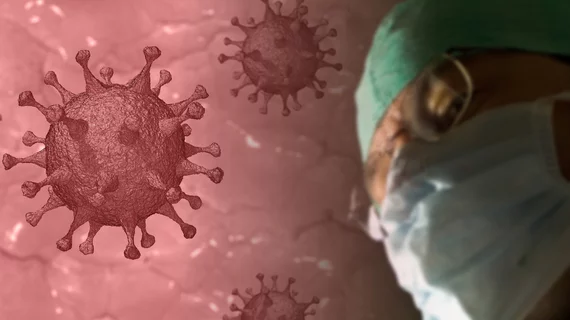Acknowledgement of uncertainty a must in COVID communication
Scientists, policymakers and the media should acknowledge “inherent uncertainties” in epidemiological models that project the spread of COVID-19 as well as avoid “catastrophizing” worst-case scenarios.
That’s the conclusion of a study conducted at Cornell University and published Sept. 25 in Science Advances.
The study involved surveys of more than 6,000 U.S. adults, conducted by two professors from the university’s Department of Government in the College of Arts & Sciences. In a series of five “experiments,” Sarah Kreps, PhD, and Douglas Kriner, PhD, examined how politicians’ rhetoric and media-framing affected subjects’ support of using COVID-19 models to guide policies about lockdowns or economic re-openings, as well as for general scientific purposes.
Kreps and Kriner found that different presentations of scientific uncertainty—acknowledging it, contextualizing it, or weaponizing it—can have important implications for public policy preferences and attitudes. For example:
- Republican elites have been more likely to attack or “weaponize” uncertainty in epidemiological models. However, survey experiments showed that such criticism, which the public apparently expected, didn’t shift confidence in models or science. The same was true of support for COVID-19 science from several Republican governors who disagreed with their party’s consensus on the topic.
- Criticism by Democrats registered as surprising and influential. When shown a quote by Gov. Andrew Cuomo (R-NY) disparaging virus models, survey respondents’ support for using models to guide re-opening policy decreased by 13%. Support for using models for science in general decreased as well.
Among the team’s other findings:
- Communication about models can ignore uncertainty by focusing on a single number or “point prediction” of COVID-19 infections or fatalities or acknowledge uncertainty by providing a model’s ranges of estimates. The latter reduces support for science-based policy making.
- Type of COVID-19 communication increases public support—i.e., by 21% for the use of models to guide policy. The researchers attributed much of this increase to subjects with a lower level of scientific literacy.
- Public trust is diminished when models prove wrong or stark projections don’t come to pass.
“[I]n the long term, acknowledging and contextualizing uncertainty may minimize public backlash should scientific projections and guidance change markedly,” the researchers concluded.
Additional details about the study and additional perspective from the researchers appear in the Cornell Chronicle.
